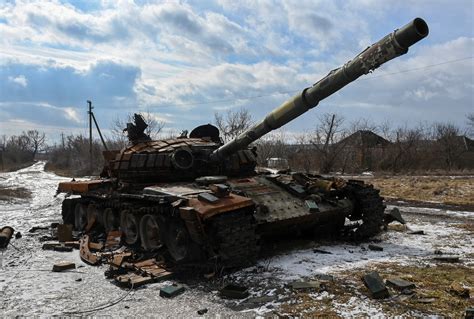Russia United States Enemy

The complex and often tumultuous relationship between Russia and the United States has been a subject of intense scrutiny and debate for decades. With roots tracing back to the Cold War era, the dynamics between these two global superpowers have evolved significantly over the years, influenced by a myriad of factors including political ideologies, economic interests, and geopolitical alignments. The question of whether Russia and the United States consider each other as enemies is multifaceted, reflecting a range of perspectives from diplomatic tensions and military confrontations to economic sanctions and cyber espionage.
Historical Context: From Allies to Adversaries

The relationship between Russia (and its predecessor, the Soviet Union) and the United States has undergone several transformations. Initially, during World War II, the two nations were allies, united against the common threat of Nazi Germany. However, the post-war period saw the emergence of the Cold War, characterized by ideological differences, proxy wars, and a race for nuclear supremacy. This era marked the beginning of a longstanding rivalry, with both countries engaging in espionage, propaganda, and military build-ups. The collapse of the Soviet Union in 1991 seemed to offer a window of opportunity for improved relations, but the subsequent years have been marked by renewed tensions, particularly following Russia’s annexation of Crimea in 2014 and its involvement in the Syrian Civil War.
Current Tensions and Conflicts
Today, the relationship between Russia and the United States is strained, with several areas of contention. The conflict in Ukraine, allegations of Russian interference in the 2016 U.S. presidential election, and disagreements over Syria and Iran have contributed to a significant deterioration in diplomatic relations. Economic sanctions imposed by the United States and its allies on Russia, in response to its actions in Ukraine and other issues, have further exacerbated the situation. Additionally, the realm of cybersecurity has become a critical front, with accusations of Russian hacking and cyber espionage aimed at the United States, prompting retaliatory measures and a heightened state of alert.
| Area of Conflict | Description |
|---|---|
| Ukraine | Russian annexation of Crimea and support for separatist movements in eastern Ukraine |
| Election Interference | Allegations of Russian meddling in the 2016 U.S. presidential election |
| Syria and Iran | Divergent interests and policies regarding the Syrian Civil War and Iran's nuclear program |
| Cybersecurity | Accusations of Russian cyber espionage and hacking activities targeting the U.S. |

Key Points
- The relationship between Russia and the United States is complex and influenced by historical, political, and economic factors.
- Current tensions are fueled by conflicts in Ukraine, allegations of election interference, disagreements over Syria and Iran, and cybersecurity concerns.
- Despite areas of potential cooperation, the prevailing atmosphere of distrust and competition dominates the bilateral relationship.
- Economic sanctions and retaliatory measures have become tools in this geopolitical standoff.
- Understanding the nuances of this relationship requires considering both the historical context and the evolving nature of global politics and security threats.
Geopolitical Implications and Future Directions

The strained relationship between Russia and the United States has significant implications for global stability, security, and the future of international relations. The potential for miscalculation and unintended escalation in areas such as Ukraine, Syria, and the realm of cybersecurity is high, posing risks not only to the two nations but also to their allies and the global community. Efforts to manage these risks and potentially reset the relationship will require careful diplomacy, a willingness to engage in meaningful dialogue, and a commitment to addressing the underlying issues driving the current tensions.
Role of International Organizations and Diplomacy
International organizations such as the United Nations, the European Union, and the Organization for Security and Co-operation in Europe (OSCE) can play critical roles in facilitating dialogue and conflict resolution between Russia and the United States. Diplomatic channels, including summits, negotiations, and confidence-building measures, are essential for reducing tensions and exploring areas of cooperation. The success of these efforts will depend on the political will of both nations, as well as the support and engagement of the international community.
As the global landscape continues to evolve, with emerging challenges such as climate change, pandemics, and technological advancements, the need for cooperation between Russia and the United States, as well as with other nations, becomes increasingly pressing. The question of whether these two nations will move towards a path of greater cooperation or continue down a trajectory of competition and confrontation will have profound implications for the future of international relations and global security.
What are the primary areas of conflict between Russia and the United States?
+The primary areas of conflict include the situation in Ukraine, allegations of Russian interference in U.S. elections, disagreements over policies in Syria and Iran, and concerns over cybersecurity.
How have economic sanctions affected the relationship between Russia and the United States?
+Economic sanctions imposed by the United States and its allies on Russia have exacerbated tensions, impacting Russia's economy and leading to retaliatory measures, further complicating the bilateral relationship.
What role can international diplomacy play in improving relations between Russia and the United States?
+International diplomacy, facilitated through organizations like the UN and the OSCE, can provide a platform for dialogue, help in managing conflicts, and explore areas of potential cooperation, thus playing a critical role in improving relations.
Meta Description: Explore the complex relationship between Russia and the United States, from historical context to current tensions and future implications, understanding the multifaceted dynamics driving their interactions.



